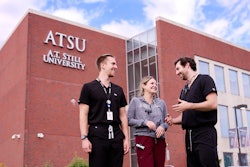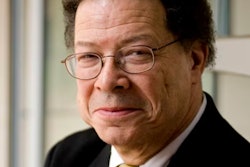There is both hope and important lessons we can glean from the experience of the Antonine Plague that nearly ended the Roman empire 200 years ahead of schedule. Roman society, however, under Emperor Aurelius rebounded after the Antonine Plague of 165 CE, the exact nature of which remains unknown. The empire under Marcus Aurelius, according to historian Edward Gibbon was a time when “the human race was most happy and prosperous,” even though it encountered enormous and enduring human misfortunes.
There are important parallels between the Roman Empire of the second century CE and current US society as both enjoyed superpower status when it came to military might and dominance with respect to culture, economics, and politics. The success of the Roman empire was attributed to good governance that emphasized community, planning, and working together to rebuild. So, which lessons are transferable as we navigate through the present global pandemic and crisis?
As leaders and members of the higher education community, we have an important role to play by drawing from these lessons and implications, from rebuilding community outreach and partnerships, engaging in new research with an increased emphasis on fiscal and social responsibility, to providing lessons in wide-ranging broad-based planning and coordination. In this essay, I could focus on the financial implications and the decimated business model or the new modes of more effectively delivering education from online learning to stackable micro-credentials. Nor is this article about the wraparound services that are necessary for our students to succeed in college, services like advising, tutoring, access to technology, a support structure of friends and other members of the community, healthcare and counseling, and basic needs such as food and safe spaces.
Here I focus on one critical question that is relevant to the future of higher education institutions: what can you teach me that specializing in my discipline/major cannot? Or the bigger question, why should I attend a traditional college that was founded on the principles of a liberal arts education? What will I learn that is so different?
A recent article, The End of Economics, by Fareed Zakaria, reminded me of how academic specialization and the division of various academic fields by subject matter have impacted the academy, research programs, policymaking, and the workplace. My discipline, Economics, typically studies the allocation of scarce resources with prices serving as the primary signaling mechanism, and the construct of markets and economic organizations. Disciplines can also be defined by methodology or approach; for example, Economics could be defined by how it approaches decision-making, centered on models of rational optimization. However, as one might suspect, subject matter and methodology do not perfectly intersect or line up together.
As an example, for the past 30 years, Behavioral Economics has established an increasingly strong foothold in understanding the role of human behavior in economic decision-making. Leading research in the fields of neuroscience, psychology, anthropology, and sociology, among others, influence our understanding of the behavior of consumers, producers, workers and investors as economic agents and question the dominance of the rational optimizing model as the primary framework to study economic problems. Methodologically, Economics has learned a lot from the use of randomized control trials that first originated in the field of early medicine and then psychology. These connections across disciplines are easier to make if one is intentionally exposed to different approaches across the curriculum, and we purposefully spend time on reflection and making meaningful connections across the core curriculum.
And that is a good thing for all of us, especially those of us that have argued that disciplinary boundaries are human-made and they must be questioned and crossed to better understand the messy world we live in and to address the complex problems that we face that are not solvable within the domain of a single discipline. The often-maligned liberal arts core curriculum – also called the general education program when done right – offered by universities and colleges in the United States, offers the best solution to train our minds to think creatively in holistic ways that are not confined to disciplinary thinking and a single way of knowing. This curriculum is founded on the principle that there are multiple ways of knowing and developing an understanding of how human knowledge allows us to step outside of our disciplines and our familiar methodology of addressing problems to think outside our disciplinary box.














